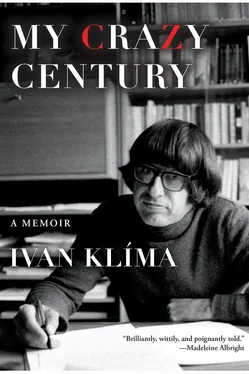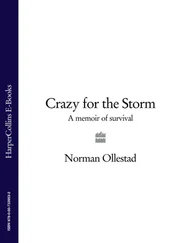Instead of arriving at the culmination of genius, we ended up at the very bottom of Czech collaborationist thinking. A half-educated maniac and mass murderer was proclaimed a genius who was supposed to lead the Czech nation as well.
Only a few years later, Communist collaborators with the Soviets touted new mass murderers as ingenious leaders worthy of being followed. Klement Gottwald asserted:
Only loyalty to the Soviet Union and the teachings of Marx, Engels, Lenin, and Stalin can ensure the future triumph and prosperity of our nation and the well-being of our people and safeguard our country from the snares of imperialism.
Twenty years later, after the Soviet army invaded and occupied our country, other collaborationists publicly praised the occupiers. The Secretariat of the Central Committee of the Communist Party, Josef Kempný, claims:
More and more people are coming to the realization that in August of 1968, together with the armies of other members of the Warsaw Pact, the Soviet army arrived just in time. The Soviet Union did not hesitate to offer assistance to our working class and workers even at the cost of incomprehension and temporary damage to its international prestige. The Soviet Union succeeded in providing international assistance, and history will appreciate the intervention as an example of class assistance in the battle against international reactionary forces.
All totalitarian and occupying regimes, of course, have their ideological adherents. Hitler’s Nazis, in the last free elections in Germany (like the Communists fifteen years later in the Czech lands), had the massive support of the citizens. Later, apparently only a small number of citizens, which included a minority of the intelligentsia, youth leaders, and artists (as well as those who emigrated), considered unacceptable the unprecedented persecution of ideological enemies and Jews.
German occupation, which for a significant part of Czech society was a shock, was welcomed by many who had an affinity for Nazism, militant anti-Semites, and various groups of Czech Fascists or staunch opponents of democracy. In the same way, Communist organizations established collaborationist groups. In complete disregard of the labor unions, they established the Union of Youth, the Pioneers for children, the Union of Czechoslovak-Soviet Friendship, the Union for Cooperation with the Army, the Union of Anti-Fascist Fighters, artistic unions that were supposed to ensure the loyalty of their members to the new regime, the Czechoslovak Union of Physical Education, and a reformed Pacem in Terris for acquiescent Catholic clerics. In addition, they indirectly ruled all special-interest groups including the two legal and entirely subordinated political parties.
These ideological kindred spirits become ever more dependent, both materially and morally, on this felonious power. Soon, many of them become its loyal servants and remain so even when their closest comrades and friends end up in prison, on the gallows, or in mass graves, murdered by other comrades and friends. They serve even though the idea has lost its credibility, and the images of a victorious empire, an earthly paradise, or at least a prosperous society have dissolved. Later, being linked to the occupation or illegitimate power will become a matter of life and death. Only in this way can we explain the desperate affirmations of the incontrovertible victory of the Nazi Reich at the very moment of its defeat.
Whereas German rule over the Czech lands lasted six years, Communist suzerainty over Czech society lasted four decades — and this was during peacetime, when the pronouncements of the spiritual riffraff did not have the appearance of treason. Perhaps precisely because they occurred during peacetime, they can be considered even more abject and disgusting.
The illegitimate power places in prominent positions only those who are prepared to offer unconditional service, to collaborate. In every society, one can find hundreds of thousands of those we call riffraff, the dregs of society, without any moral scruples. Writers of anonymous abuse letters, racists, followers of a ruthless government, or adherents of hateful ideologies are always on hand. In return for their blind support, the illegitimate power offers them a share in its prestige and its power, and the chance to settle accounts with those they hate, those they envy, those to whom they are inferior. They will write denunciations against Jews who dare go out without their yellow stars, against neighbors who listen to foreign radio broadcasts. Often with gleeful satisfaction, they ally themselves with secret police, whether it goes by the name of the gestapo, the State Security, or Cheka. They will acclaim everyone whom the power designates worthy of respect and will demand the death of others (or even the same ones), if the powers proclaim them worthy of death. They will execrate businessmen, the university educated, and former factory owners just as they did Jews. They will hang banners with a swastika and, with the same alacrity, banners bearing hammers and sickles. The moment for the spiritual dregs of society arrives with the fall of democracy, with the suppression of the country’s basic freedoms. In our country, these moments were connected with occupations and the violent establishment of totalitarian power.
The riffraff is not the same as the people , writes André Maurois in his History of France , whereby he clearly seeks to emphasize the difference between an individual’s social origin and his behavior. Collaborationist and totalitarian regimes, however, usually call the riffraff the people and rule only on their behalf.
With the development of science and the method of its speculation, the notion spread that the knowledge of each one of us is limited by both our abilities and the overall level of understanding. It is therefore accepted that most of our conclusions will most likely not be eternally valid; we might be mistaken. We are willing to admit, even publicly, our mistakes.
Such a way of thinking was, of course, until recently unique and condemned. Our forefathers not only possessed a firmly established set of values but also professed firm and eternally valid truths. Even Socrates was accused and condemned for not recognizing the gods that were recognized by the community, and for thereby corrupting the youth. According to the Evangelists, Jesus was accused of blasphemy because he did not deny that he was the Son of God before the high priest and predicted he would be “seated at the right hand of the Power and coming with the clouds of heaven.”
The majority of the most widespread religions oblige believers to accept the truth proclaimed in the recognized and immutable canon. There is one God, the creator of the earth and the heavens and all of creation. His Son, with whom he and the Holy Ghost form a unified entity, is the savior of all who believe in him.
There is one God, and (only) Muhammad is his prophet. Immutable and obligatory rituals were established. The Christian faith even conducted wars to determine whether believers could consume wine and bread as a symbol of the blood and body of the Lord or whether only the priests enjoyed that right. Other religions established how their temples or mosques could be situated and how one behaves in a house of worship.
For entire centuries in our lands, the Bible determined not only fundamental moral norms but also fundamental truths about history and the origin of the world and of life. (To be more precise: Those who arrogated to themselves the right to interpret the Bible determined which of the ideas of ancient pre-Christian philosophers and scholars could be reconciled with biblical tidings and what was necessary to reject and perhaps destroy.) Those who doubted their conclusions were pronounced heretics. For centuries, it was an indubitable truth that the earth was the center of the universe and the sun revolved around it. Not too long ago, it was thought that some women could be proved to be witches, that they flew around at night and participated in sinful sabbaths, that the devil traveled around the world trying to seduce people to sin, that it was possible to buy one’s way out of eternal damnation. Then, one of the most serious sins was to doubt the truths of established power. For centuries, the church ruled over people’s thinking. It introduced confession; it offered spiritual relief because it assumed the right to forgive the sins of all who humbly admitted to breaking the commandments. At the same time it ensured that the priests knew the thinking and disposition of their parishioners, their lesser and greater offenses, as well as any skepticism regarding the established truths.
Читать дальше












